Projects

Employer’s contribution to strengthening national defence and supporting reservists
The aim of the project is to raise employers “awareness of the opportunities to contribute to national defence and to strengthen employers” willingness to support the participation of reservists in training sessions.
The project will focus on sharing information, showcasing best practice and fostering cooperation between the business sector and the public sector in order to increase employers’ willingness to provide the necessary material and moral support to reservists.
Project period: 10 March 2025 – 15 December 2025.
Funded by: Ministry of Defence
The project is implemented by the Estonian Employers’ Confederation.

Donate Time initiative
Let’s Donate Time is a charitable initiative launched by the Estonian Employers’ Confederation and Swedbank AS to promote volunteering among organisations and their employees in Estonia and encourage employers to give their employees the opportunity to contribute to society and the community with at least one paid day off a year. It is a simple and flexible model for starting a charitable activity in a company or complementing already existing responsible activities.
2025. The aim for 2010 is to enhance the activities of the Donate Time
initiative, focusing on promoting volunteering and increasing the value of donating time in Estonian organisations. In addition to the ESG-related
themes, we will also introduce themes related to the development of a culture of leadership.
The focus will be on being an active partner for the members of the Donate Time network by engaging, problem-solving and sharing contacts, as well as bringing together and bringing together different actors in different events.
Sponsor: Swedbank AS

The role of the employer in contributing to national defence
The main objective of the project is to raise awareness among employers about the opportunities to contribute to national defence and to increase the willingness of companies and employers to support the participation of reservists in training sessions and to increase their willingness to maintain the income of reservists during training sessions and to provide other benefits to reservists.
The aim is to create new opportunities and strengthen cooperation between the business sector and the national defence authorities.
Project period: 1 October 2024 – 31 December 2024.
Funded by: Ministry of Defence
The project is implemented by the Estonian Employers’ Confederation.

Donate Time initiative
Let’s Donate Time is a charity initiative launched by the Estonian Employers’ Confederation and Swedbank AS to promote volunteering among organisations and their employees in Estonia. The main objective of the initiative is to encourage employers to give their employees the opportunity to contribute to society and the community by providing at least one paid day off per year. It is a simple and flexible model for starting a charitable activity in a company or complementing already existing responsible activities.
2024. The first priority for 2010 is to further develop and actively communicate the benefits of being part of the Donate Time network to its members, which means being an active partner for members through engagement, problem-solving and contact-sharing, and bringing together different actors.
The secondary priority is to raise awareness of the Donate Time initiative among the wider public and to activate the network’s members through exciting meetings, sharing up-to-date information and highlighting members.
Sponsor: Swedbank AS
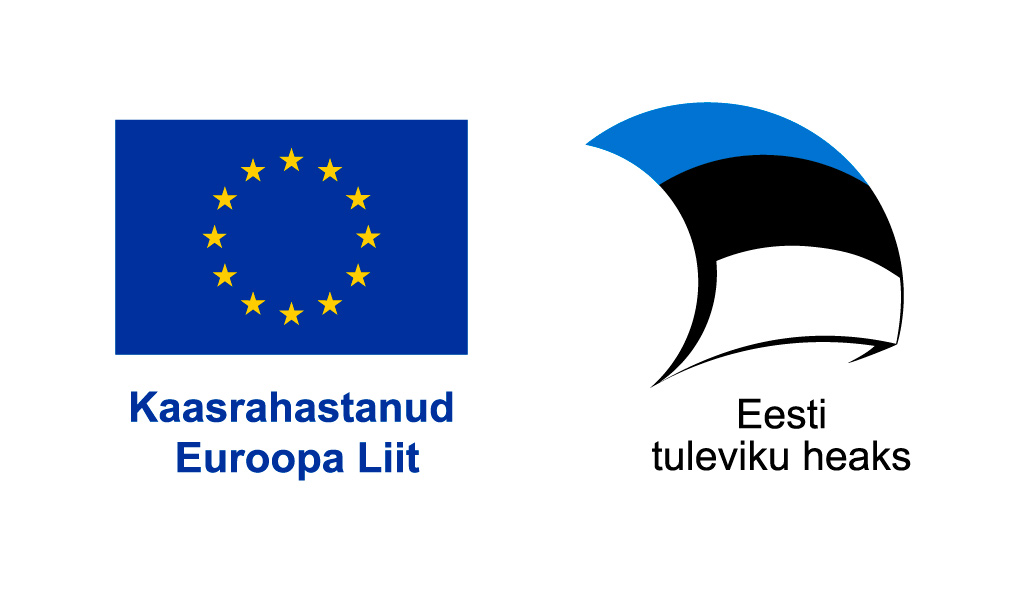
Continuation of the Development Advisor (Confederation of Estonian Employers)
The grant is intended to cover the salary costs of a development adviser. By hiring a development advisor from the Confederation of Estonian Employers, we support the innovation capacity and productivity of Estonian employers, enabling both employers and employees to earn more and make their business more sustainable.
The aim of the project is to implement the Action Plan of the Employers’ Innovation Start-up Chamber Task Force, which aims to increase the innovation capacity and business sustainability of entrepreneurs. Through this project, we want to contribute to the objectives of the R&D, Innovation and Entrepreneurship Development Plan 2021-2035 (RDI-PIP 2021-2035), which, as an important representative of the business sector, we consider one of our priorities.
As a result of the work of the Development Advisor:
- Increasing awareness of professional associations and businesses:
1.1. on the innovation triangle,
1.2. on RDI terminology and regulation,
1.3. on measures to promote RDI,
1.4. on RDI networks and information channels,
1.5. on the need and opportunities for protecting intellectual property,
1.6. on sustainability regulation, measures and other ecosystems; - Increasing awareness of public and R&D institutions among businesses:
2.1. on R&D&I needs and developments,
2.2. on proposed solutions to increase the capacity and sustainability of R&D&I; - increasing TAI for large companies by 2% of club membership;
- employers’ proposals to:
4.1. the government to increase innovation capacity and sustainability, including increasing/timing the supply of engineers, RDI workers and green skills;
4.2. where necessary, amendments to draft laws and development plans to be coordinated.
Co-financier: European Regional Development Fund (ERDF)
Amount of the grant: €59000.
Period: 01.05.2023 – 30.04.2025

Social partnership and flexible working (Facilitated access to work through flexible work) (2022/348366)
Funding from: The project is funded through the “Social Dialogue – Decent Work” programme of the Norway Grants 2014-2021.
The aim of the project is to support and develop cooperation between the social partners, to train employers and to support dialogue with workers and their representatives. It will also gather input for improving flexibility in industrial relations, improving legislation and reaching agreements between partners.
Project period: 1 January 2023 – 29 February 2024.
The project is implemented by the Estonian Employers’ Confederation. The project partners are the Estonian Trade Union Confederation and the Norwegian Confederation of Enterprises (NHO).
International cooperation project “Digitalising the world of work with social partners”
The project “Digitalising the world of work with social partners” is an international cooperation project that aims to learn from other countries’ practices – how they are working with trade unions and employers to address the digitally transformed work environment and later apply the knowledge gained in their own work.
It also aims to show both the employee and the employer that digital opportunities offer benefits and added value.
The project will run from March 2021 to March 2023.


Social partnership and flexible working (Facilitated access to work through flexible work)
Project period: 2020 – 2022
Funding from: The project is funded through the “Social Dialogue – Decent Work” programme of the Norway Grants 2014-2021.
The aim of the project is to support and develop cooperation between the social partners, to train employers and to support dialogue with workers and their representatives. It will also gather input for improving flexibility in industrial relations, improving legislation and reaching agreements between partners.
The project is implemented by the Estonian Employers’ Confederation. The project partners are the Estonian Trade Union Confederation and the Norwegian Confederation of Enterprises (NHO).

Employer networking on hiring people with reduced work capacity 2017-2021
Project period: 2017 – 2021
Funded by: the European Social Fund
The aim of the project is to increase the awareness, skills and willingness of employers to take into account the different needs of their employees and to reduce prejudices and fears about hiring people with disabilities by raising awareness.
The project is commissioned by the Ministry of Social Affairs and carried out by the Estonian Employers’ Confederation and the Personnel Management Association PARE.
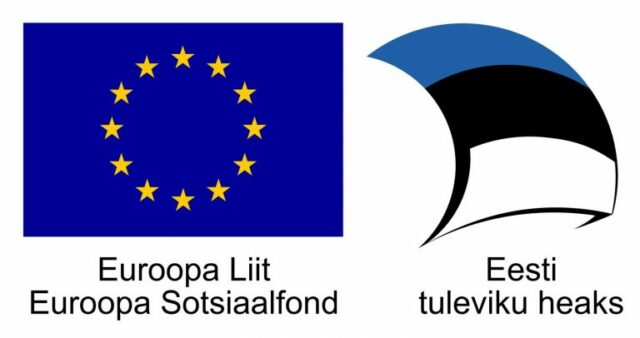
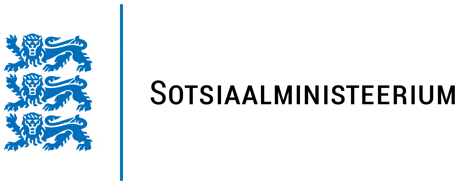
Increasing digital literacy
Project period: 2017 – 2021
Funded by: the European Social Fund
The “Estonian Information Society Development Plan 2014-2020” sets the goal of reducing the share of non-users of computers and the internet to 5% by 2020.The DigiABC project supports the achievement of this goal and offers the opportunity to acquire digital literacy, which in turn supports working-age people to become members of the information society and increases their personal competitiveness and the competitiveness of sectors important for the Estonian economy.
The project is commissioned by the Ministry of Economic Affairs and Communications and implemented by IT Koolitus and the Confederation of Estonian Employers.

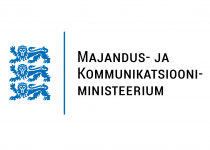

The importance of practical learning in society
Actions “Development of the traineeship system in vocational and higher education, including teacher training traineeships” and “Enhancing the image of vocational education, expanding work-based learning”.
Project period: 2015 – 2019
Funded by: the European Social Fund
The aim of the project is to raise awareness among employers about the nature and opportunities of apprenticeships and work-based learning, to improve the image of apprenticeships and apprenticeships among employers and in society at large, and to recognise the best providers of apprenticeships and apprenticeships – entrepreneurs.

2015-1- LT01- KA202-013415-930003700. Developing apprenticeships: training on-the-job trainers and promoting apprenticeships.
Measure: KA2 Strategic partnership
Project period: 01.09.2015-31.08.2017
Funded by: the Erasmus+ programme
Partners: the Estonian Employers Confederation, the Jerusalem Labour Market Training Centre (Lithuania), the Centre of Expertise and Productivity (Finland), Actions Intégrées de Développement asbl (Integrated Development Action) (Belgium), the Lithuanian Qualifications and Vocational Training Development Centre (Lithuania), the Lithuanian Engineering Industries Association (Lithuania), the Lithuanian Builders Association (Lithuania).
The aim of the project is to specify the training needs of workplace apprenticeship supervisors, to draw up training plans and to train apprenticeship supervisors as a pilot project.

New social co-operation model – increasing of employees’ involvement in the company’s financial management and economic performance
Project period: 02.11.2015-30.04.2017
Contract No VS/2015/0382
Funded by: the European Commission
Partners: the Estonian Employers’ Confederation, Latvijas Brivo Arodbiedribu Savieniba, Lietuvos Profesiniu Sajungu Konfederacija Lpsk, Nordbildung Bildungsverbund Fur Die Metall- Und Elektroindustrie Gemeinnutzige Gmbh, Vilniaus Pramones Ir Verslo Asociacija ; Vsi Projektu Valdymo Ir Mokymo Centras.

The role of collective bargaining in adapting working conditions for people with reduced work capacity
Project period: 2016 – 2018
Funded by: the European Commission, Swedbank
The aim of the project is to support the capacity of employers and workers’ representatives to support the labour market participation of people with reduced work capacity, including disabled and ageing workers. The project will result in proposals, in cooperation with the Estonian, Polish and Hungarian social partners, on how to promote the adaptation of working conditions for people with reduced working capacity.
The project involves the Praxis think tank, the Confederation of Estonian Employers, the Confederation of Estonian Trade Unions, Cardiff University (UK), Instytut Spraw Publicznych (ISP, Poland), Konfederacja Lewiatan (Polish employers), Konfederacja Pracy (Polish trade unions), the Hungarian Trade Union Confederation (MaSzSz, Hungarian trade unions) and the National Association of Employers and Industrialists (MGYOSZ, Hungarian employers).
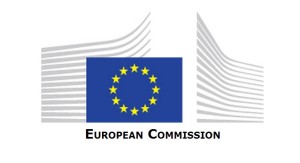

Increasing the capacity of the Estonian Employers’ Confederation to have a say in policy making
Measure: Developing the quality of policy making
Project period: 2014 – 2018
Funded by: the European Social Fund
The aim of the project is to increase the capacity of the Estonian Employers’ Confederation to participate in policy-making. In order to increase the capacity of our members to engage, we will train key people in the Confederation and its branches and develop our own engagement processes with the help of a consultant. To increase analytical capacity, we will develop our network with policy research institutions, develop analytical skills and produce analyses to identify problems and solutions related to economic competitiveness.
